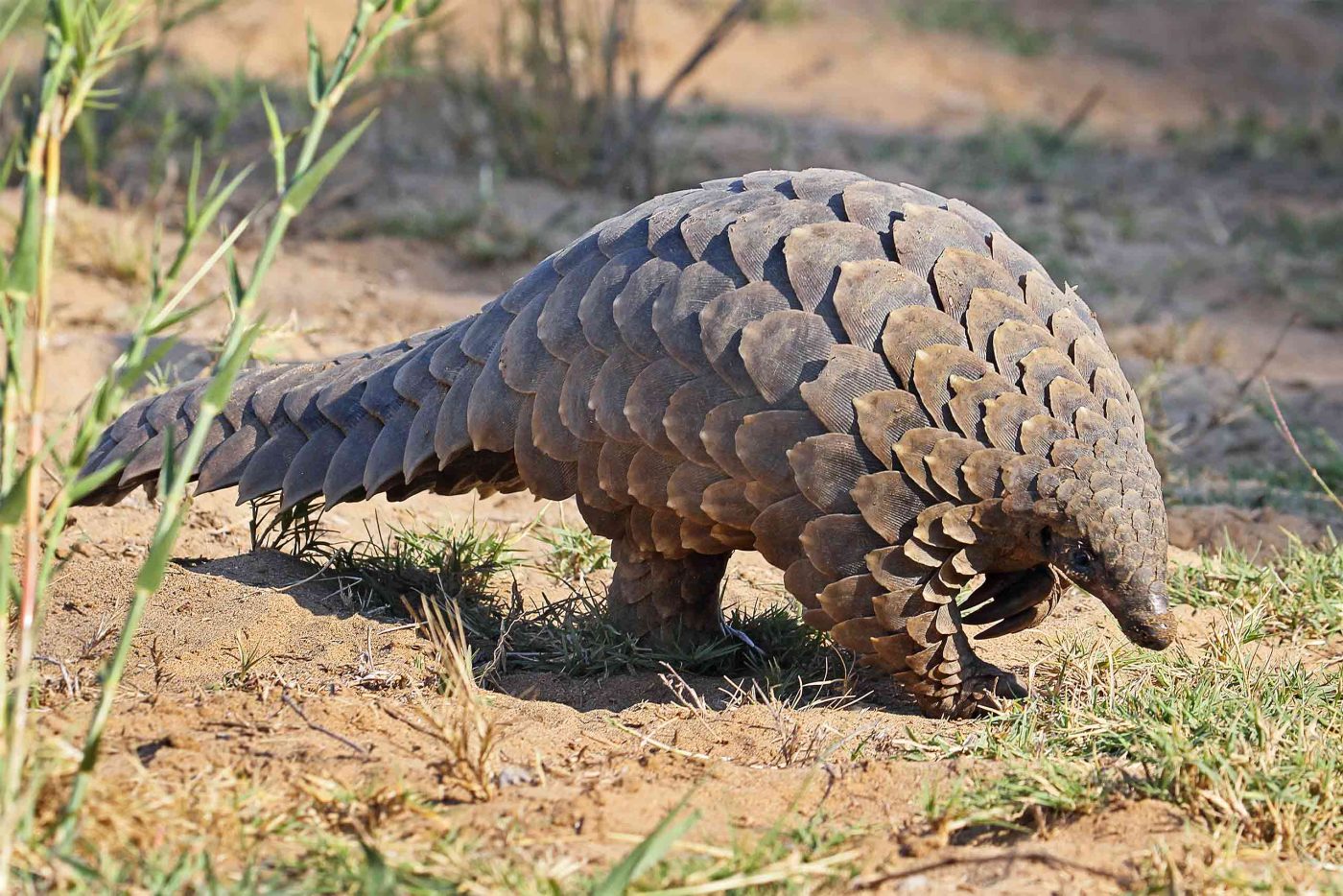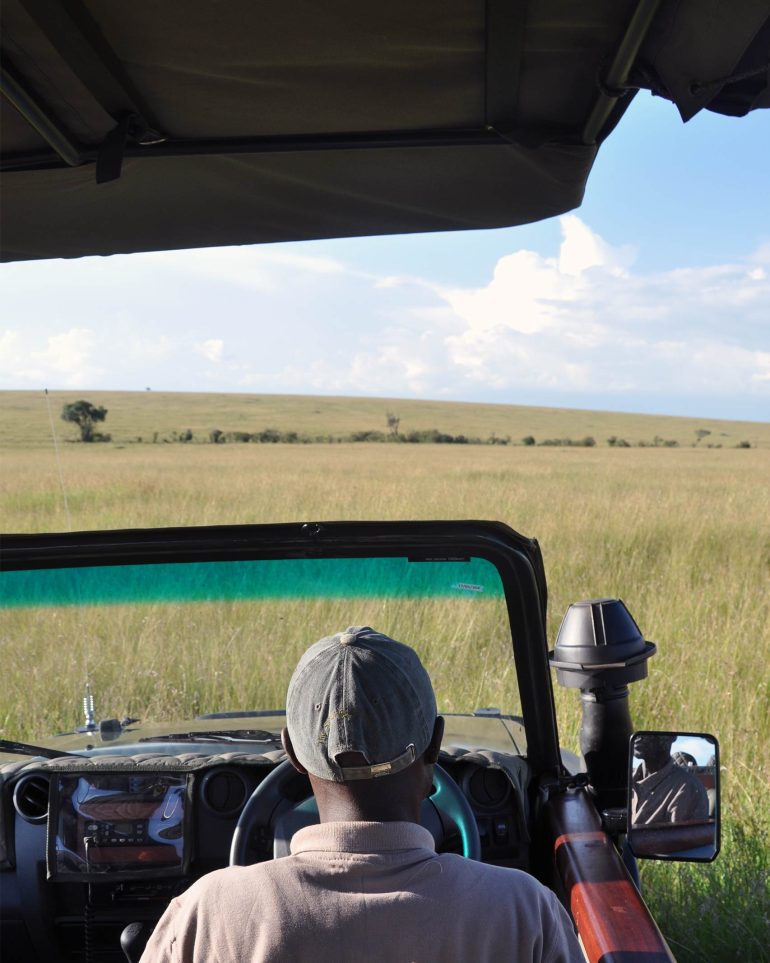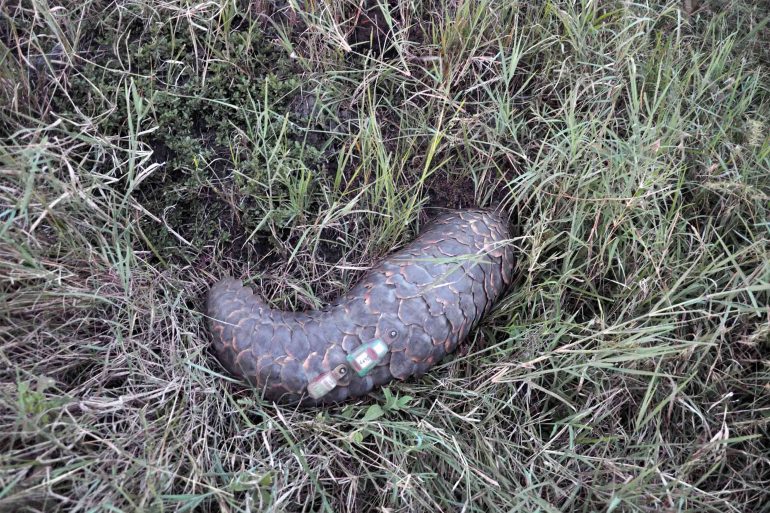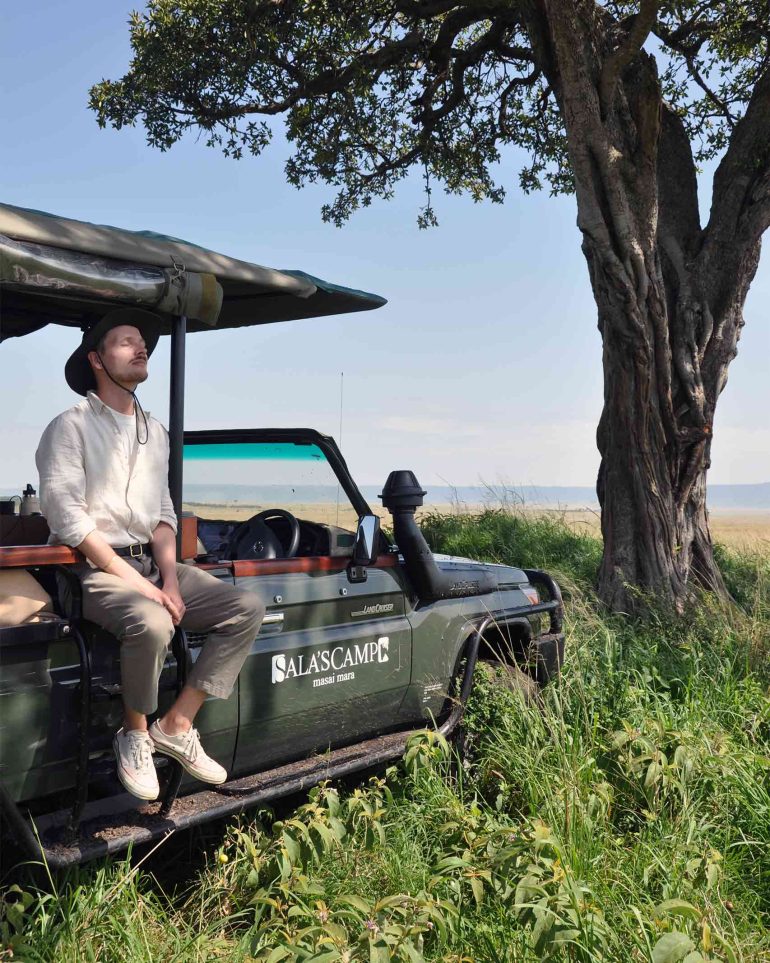Pangolins are the single-most trafficked animals in the world – that’s a fact. Luckily, safari-goers in Kenya’s legendary Masai Mara National Reserve can contribute to vital conservation efforts spearheaded by the Pangolin Project. And they might even get to lay eyes on one of these extremely elusive animals.
When visiting the Masai Mara in the weeks leading up to the annual Great Migration of wildebeests, even experienced safari-goers will notice an almost eerie silence across the plains. It’s as if every living thing in the bush, from small leopard tortoises to heavy-weight hippos, knows something is up. Though, with this part of Kenya ranking among Africa’s most legendary safari destinations, even a quiet day in the savannah holds infinite potential for awe and excitement. That’s something we learned on our first game drive with our Sala’s Camp guide Samson and our spotter Harrison, a local Masai tribesman.
Samson told us that there’s always a chance we might see something exceedingly rare in this bush. They have a knack (stemming from years of experience) of making each and every game drive feel like it was our very first. Having already ticked the ‘big five’ off our list on this trip to Kenya, something exceedingly rare sounded enticing, and one animal in particular is perhaps the most seldom seen of all – the pangolin. These primarily nocturnal creatures, which live mostly underground, are so elusive, even most Kenyans rely on Google to see one. And yet, with the assistance of a local NGO and a stupendous amount of luck, we managed to track one down on a late-afternoon game drive.
There it lay in the high grass, a female Temminck’s pangolin with a GPS tracker attached to its scaly back. The team at the Pangolin Project, the NGO which helped us find the animal, explained that pangolins are the world’s single-most trafficked mammals. Their scales, falsely believed to have medicinal properties in traditional Chinese medicine, are sold across Asia and parts of Africa. This illegal trade has had disastrous impacts on pangolin populations globally. As it stands, the International Union for Conservation of Nature’s Red List categorises all eight species as vulnerable, to critically endangered.
Like rhinoceros horns and human fingernails, a pangolin’s scales are made of simple keratin, but that doesn’t stop the poachers. The Pangolin Project, which is funded entirely by donations, seeks to protect Kenya’s pangolin numbers through low-interference monitoring, research and awareness campaigns. Furthermore, they have established a communication network with several local camps, including Sala’s – the more eyes on the Masai Mara’s threatened wildlife, the better. Plus, on rare occasions, safari guests like ourselves get to enjoy the once-in-a-lifetime opportunity to see these magnificent creatures in the wild – if only for a few, magical moments.
Pangolins aren’t the most graceful of mammals and, with their scaly bodies and long tongues, they’re certainly among the more peculiar sights in the bush. But these prehistoric creatures are some of the oldest surviving wildlife in the world today, and their extinction would leave a devastating hole in the earth’s biodiversity record. As night started to fall, we prepared to return to Sala’s Camp. It was then that our Pangolin Project ranger asked if we’d noticed her abdomen. They’d had to keep it secret until we were out of range, but the pangolin we saw was due to give birth soon, inspiring hope that one day pangolin populations will be stable again. Until then, we trust that they’ll do everything here to tip the scales – quite literally.
Steffen’s visit to Sala’s Camp was part of a journey that takes in a number of iconic Kenyan properties situated in the finest of locations. The Safari Collection portfolio includes unique, bucket-list escapes like Giraffe Manor.
www.thesafaricollection.com | @thepangolinproject
Photography by Steffen Michels










